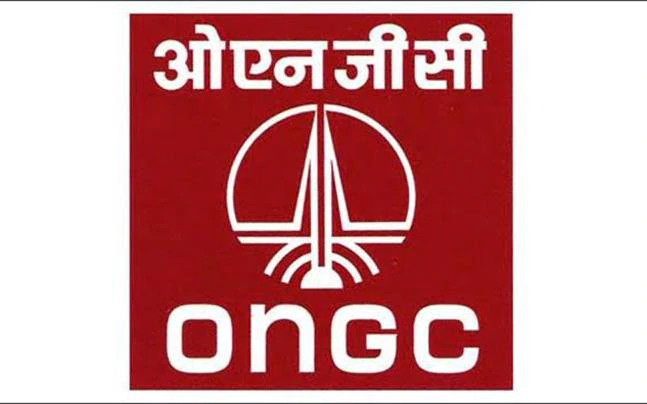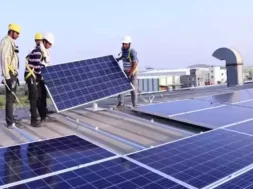
Africa raises fight against energy poverty, launches world’s 1st renewable mini-grid forum
Stakeholders in Africa’s electricity market today launched the Africa Mini-grid Developers Association (AMDA), pledging to leverage the potentials of mini-grid renewable electricity sources to deliver power to at least 140 million Africans.
AMDA which plans to be continent-wide with chapters currently in Kenya and Tanzania, and new ones expected to open in Nigeria – which holds the potential to be Africa’s largest mini-grid market, said it would work to tackle energy poverty in the continent with greater commitment to business models of public-private partnership.
It announced its official establishment in Nairobi, indicating it currently has about 11 member companies including innovative start-ups and established utilities. AMDA, explained it aims to combine private sector innovation, efficiency, and customer service with public sector support to help end energy poverty across Africa.
“AMDA is the first trade association dedicated exclusively to the mini-grid industry, and is composed of developers operating AC mini-grids that ensure power reliability of at least 20 hours per day. The association also works closely with a variety of solution providers, including EPCs, hardware and software vendors and integrators.
“AMDA currently has chapters in Kenya and Tanzania, where member companies have built 430 kilometers of transmission lines, and renewable generation to serve over 11,000 connections, including households, schools, health clinics, micro-enterprise and agriculture,” said the new trade association in its inaugural statement obtained by OGN in Abuja.
It further stated: “AMDA, which plans to grow into a pan-African platform for private utilities, is in the process of setting up its next chapter in Nigeria, which will include seven additional local developers, and has so far received interest from three other countries.”
“AMDA’s vision is to see 100 per cent of Africa electrified before 2030, and this will require utilities to incorporate new and innovative technologies, with mini-grids playing a central role,” said Jessica Stephens, AMDA’s Global Coordinator.
Stephens added: “Mini-grids can deliver more connections per dollar, can be deployed more rapidly than traditional grid infrastructure and play an important role in stimulating local economic opportunities and creating job.”
A unified voice for Africa’s mini grid operators
The statement further noted that by providing a unified voice for Africa’s renewable energy mini grid industry, AMDA aims to partner with governments and utilities to build next generation grids based on the needs of both industry and communities.
It stated that AMDA will share knowledge and feedback with policy-makers, regulators and investors, while also representing the voice of the customer, which is currently under-represented on the issue of energy access.
AMDA’s near-term objectives shared
The statement also highlighted some of AMDA’s intentions for the near future. It listed them to include: mobilize finance for mini-grids – that is, working with donors, national governments and other stakeholders to develop a smart Results Based Financing (RBF) fund to support scale-up of mini-grids, as well as finding ways to unlock lower-cost debt capital; equalize public-private incentives which means achieving a level playing field, both regulatory and financial, for mini-grids that is on par with other grid-based solutions; make integrated planning the norm – that is to establish national grid integration frameworks that are inclusive of mini-grids.
Other near term objectives of AMDA as stated by the statement are: better inform market support activities by highlighting useful areas for public interventions and providing market information to organizations funding R&D and innovation; unify and expand voice of the sector across Africa, that is to grow the number of members to at least 25 developers across seven countries by the end of 2018, with a longer-term goal of representing all private sector developers across the continent.
Next chapter expected in Nigeria, Ethiopia, Uganda
Perhaps aware of the potentials of mini grid power in Nigeria, AMDA stated that it will immediately launch its next chapters in Nigeria, with the goal of adding additional chapters in Ethiopia and Uganda by the end of 2018.
According to it, it has the supports of the Shell Foundation, World Bank and the UK Department for International Development (DfID).
A potpourri of support
Its statement quoted Richard Gomes, Director of Market Development at Shell Foundation, to have said that: “Mini-grids offer the quickest, most cost-effective way to bring 24-hour power to large parts of Africa, while other areas will be better served by standalone home systems or national grid extension.”
Gomes, further noted that: “Unlocking public and private capital to accelerate the growth of this sector is therefore critical to meet the continent’s energy needs. We believe AMDA will help facilitate this by providing an aligned industry viewpoint, accurate market information and technical support for investors and policy-makers that is missing in today’s market.”
Similarly, Amadou Hott, the African Development Bank’s Vice-President for Power, Energy, Climate and Green Growth said in the statement that: “Green mini-grids are an essential part of the bank’s New Deal for Energy 2 which envisions 75 million new connections coming from distributed energy solutions.”
“Through our various initiatives, including the Green Mini-Grid Market Development Program, the AfDB looks forward to working closely with AMDA to create the necessary conditions for scaling the sector, and energy access, across Africa,” Hott added.
AMDA listed its current members to include Engie, Ensol, Husk Power Systems, Jumeme Rural Power Supply, PowerGen Renewable Energy, Powerhive, Rafiki Power, Redavia, Rift Valley Energy, RVE.SOL and SteamaCo, most of which are based in Kenya and Tanzania.















